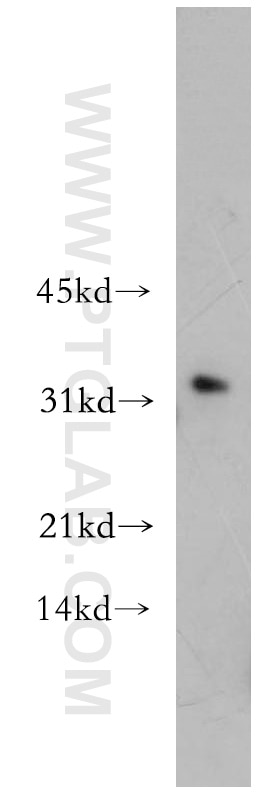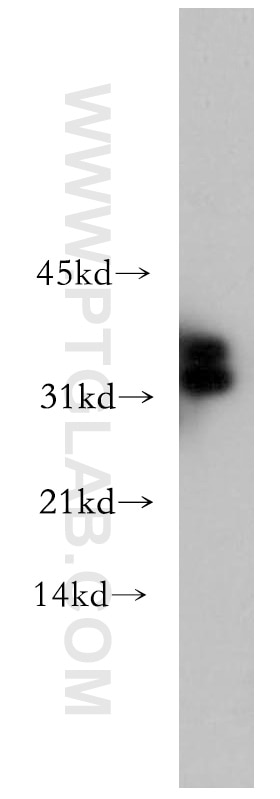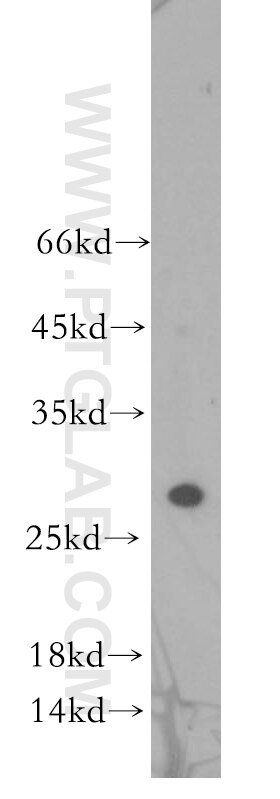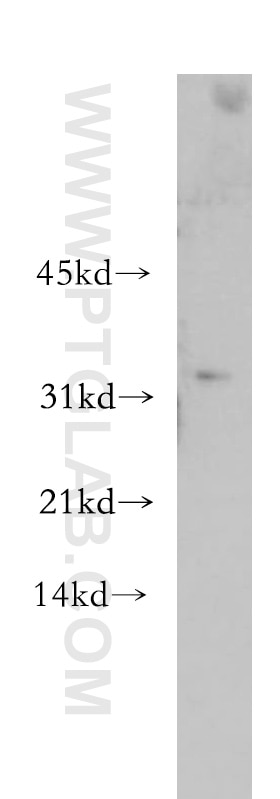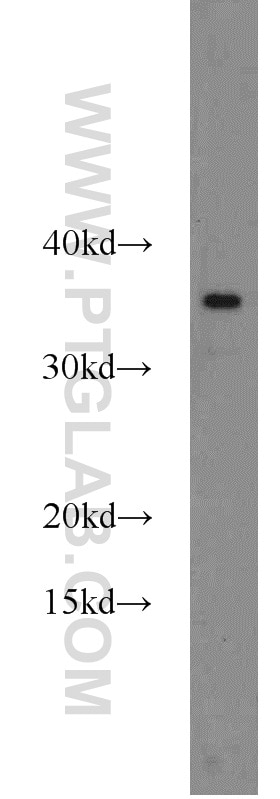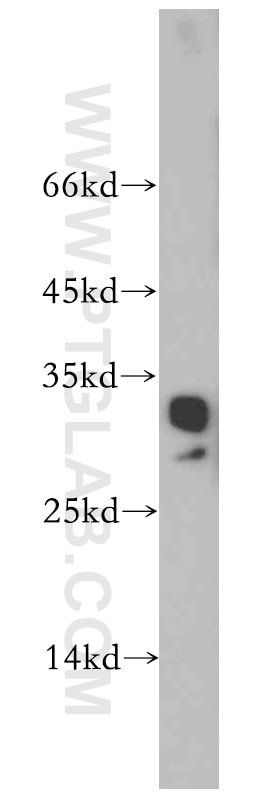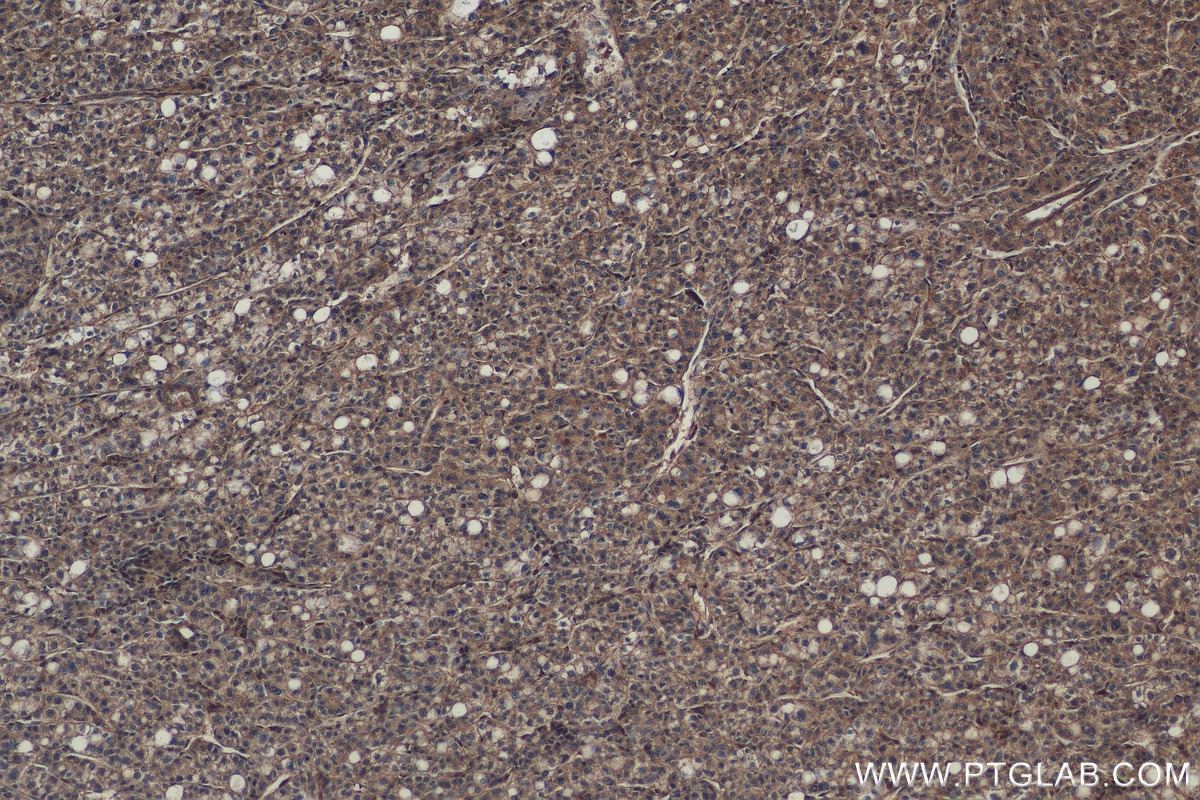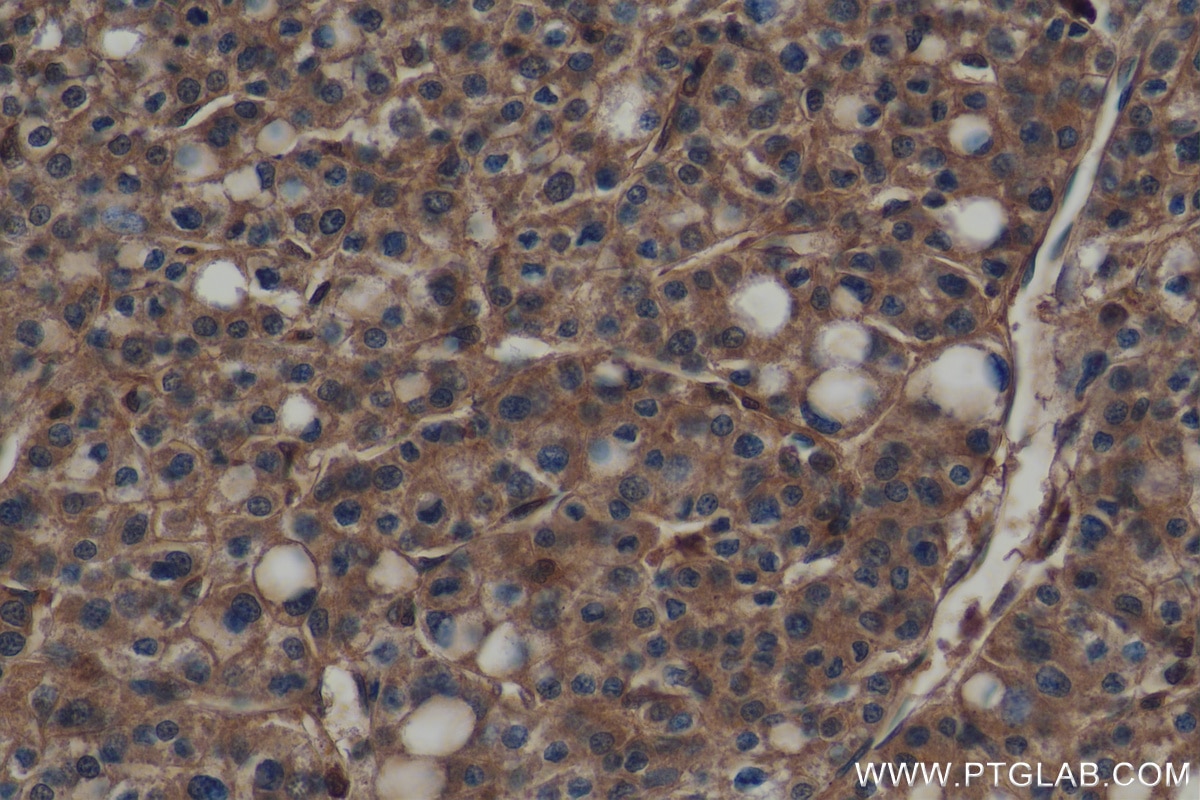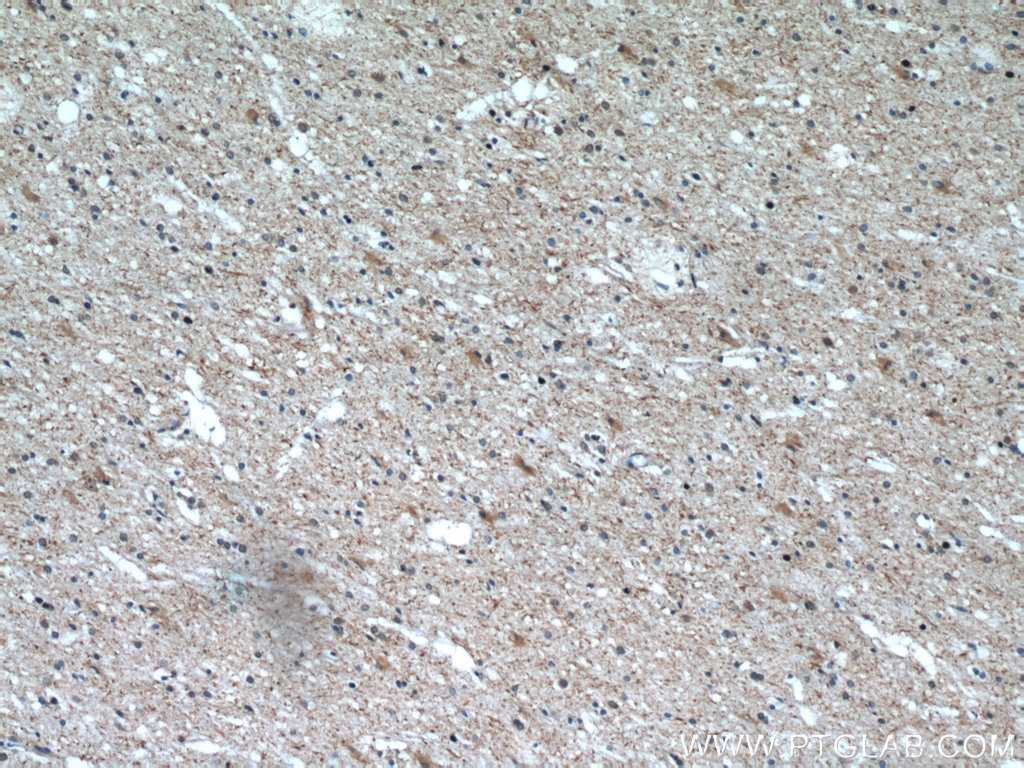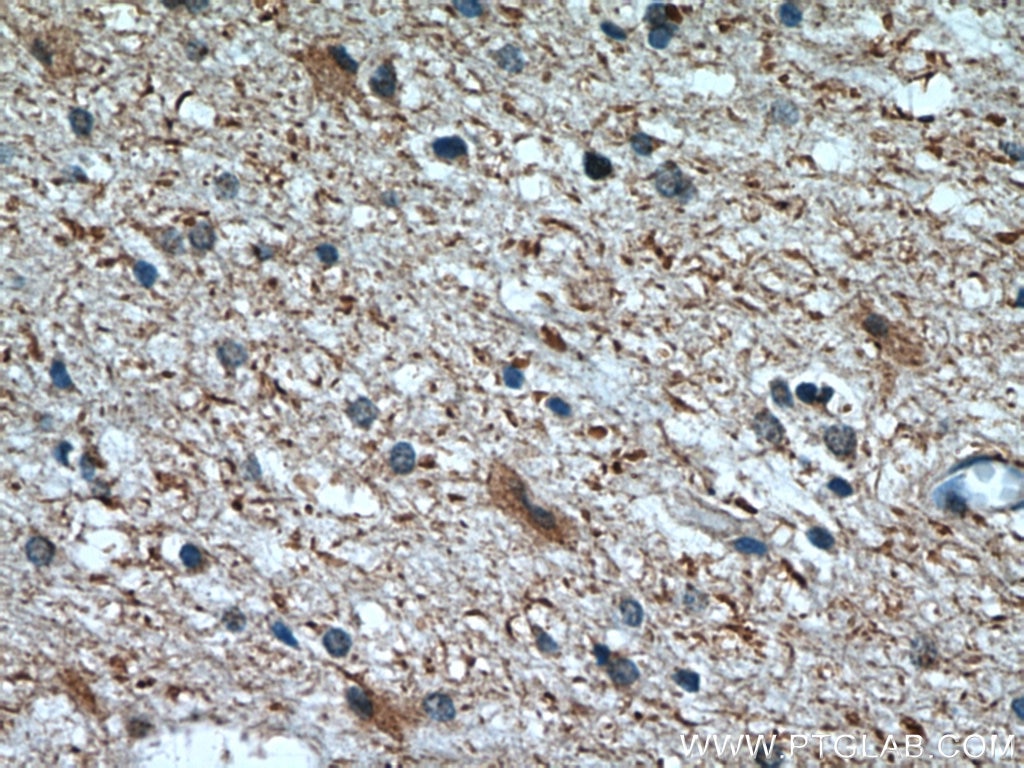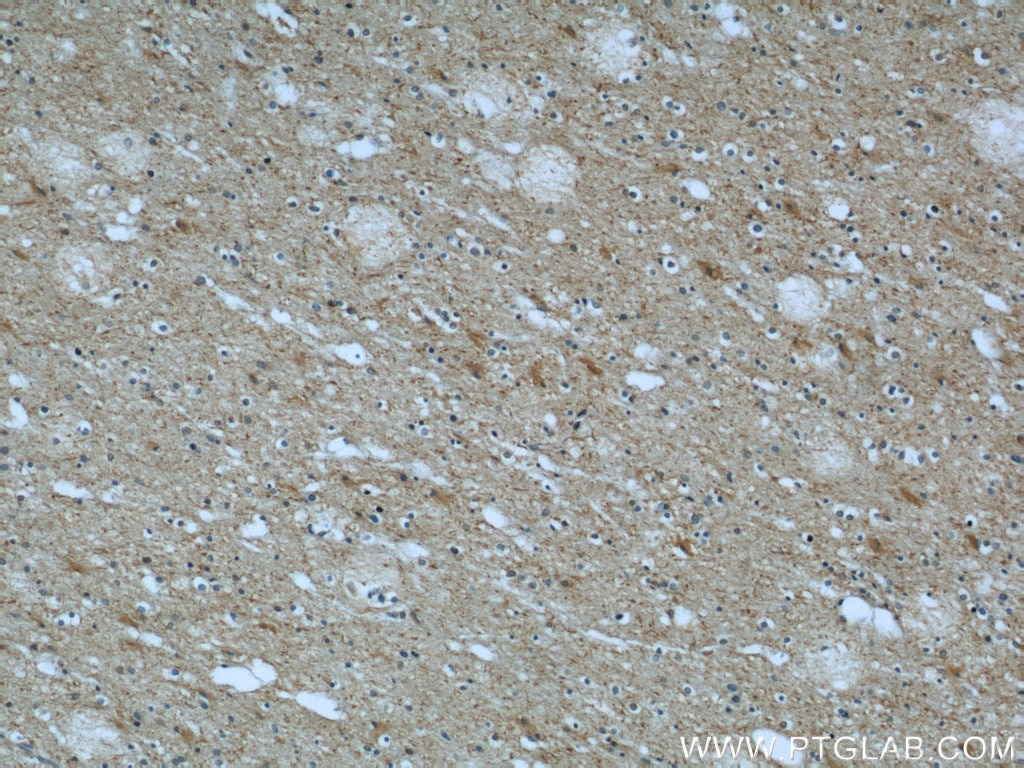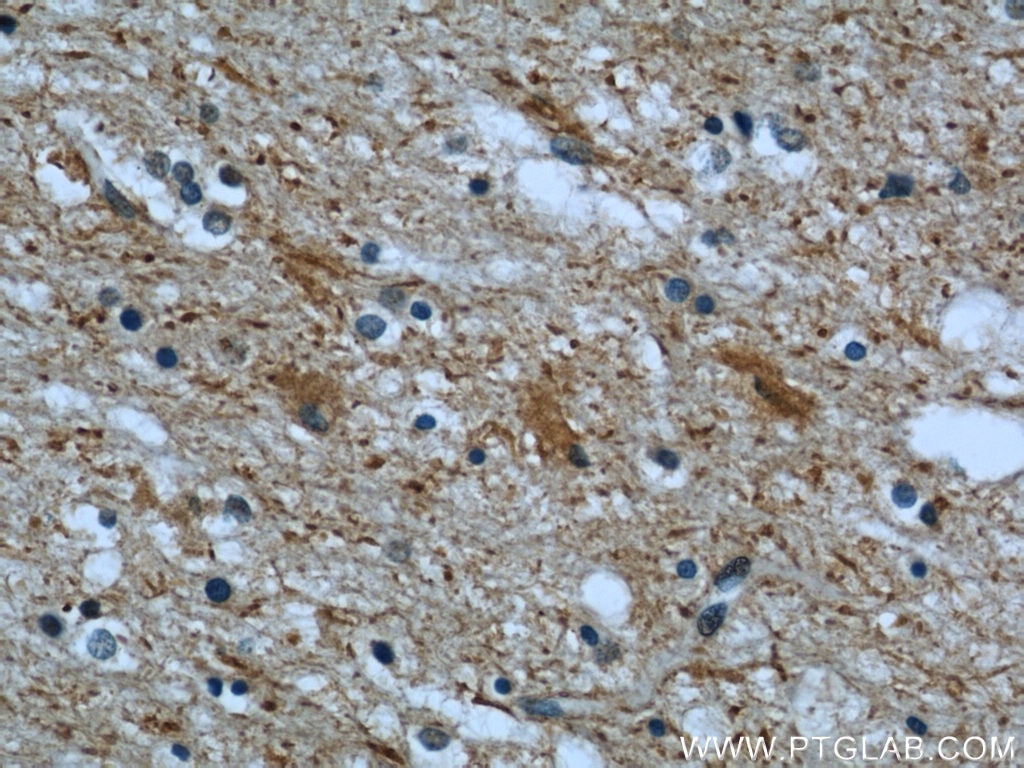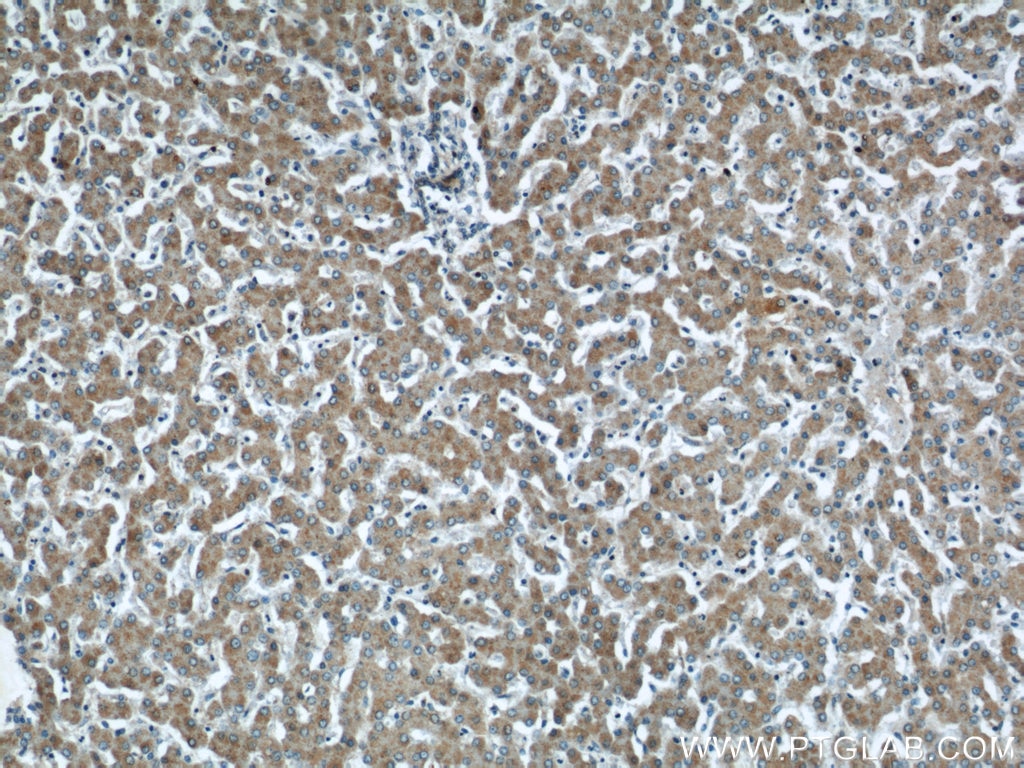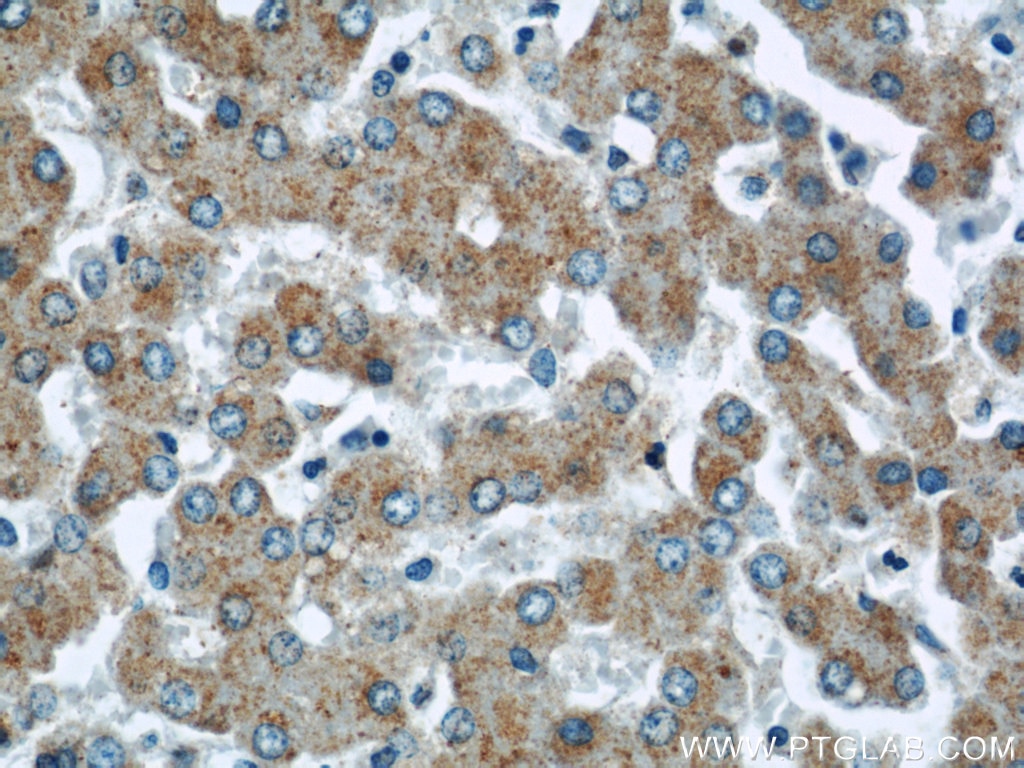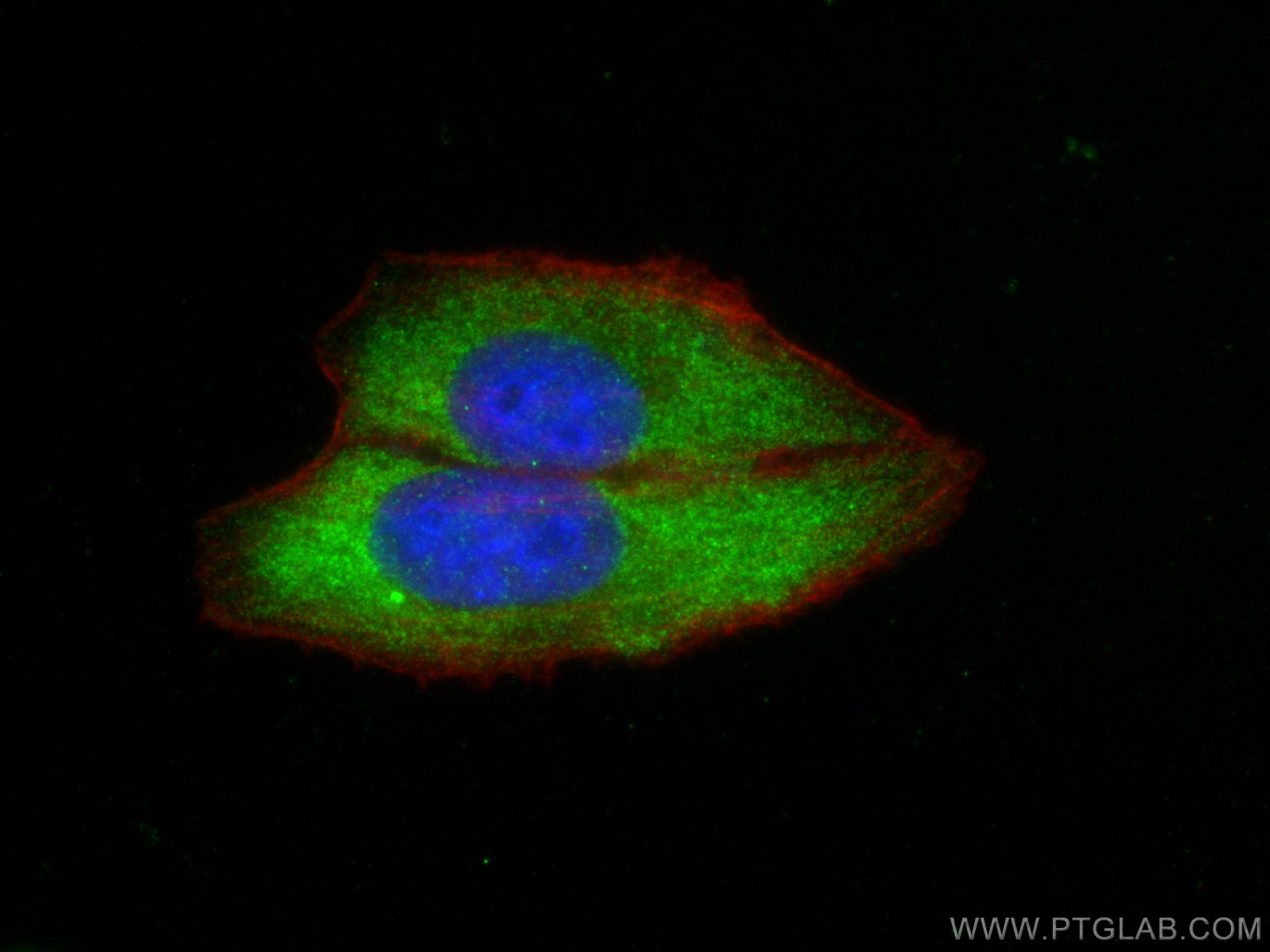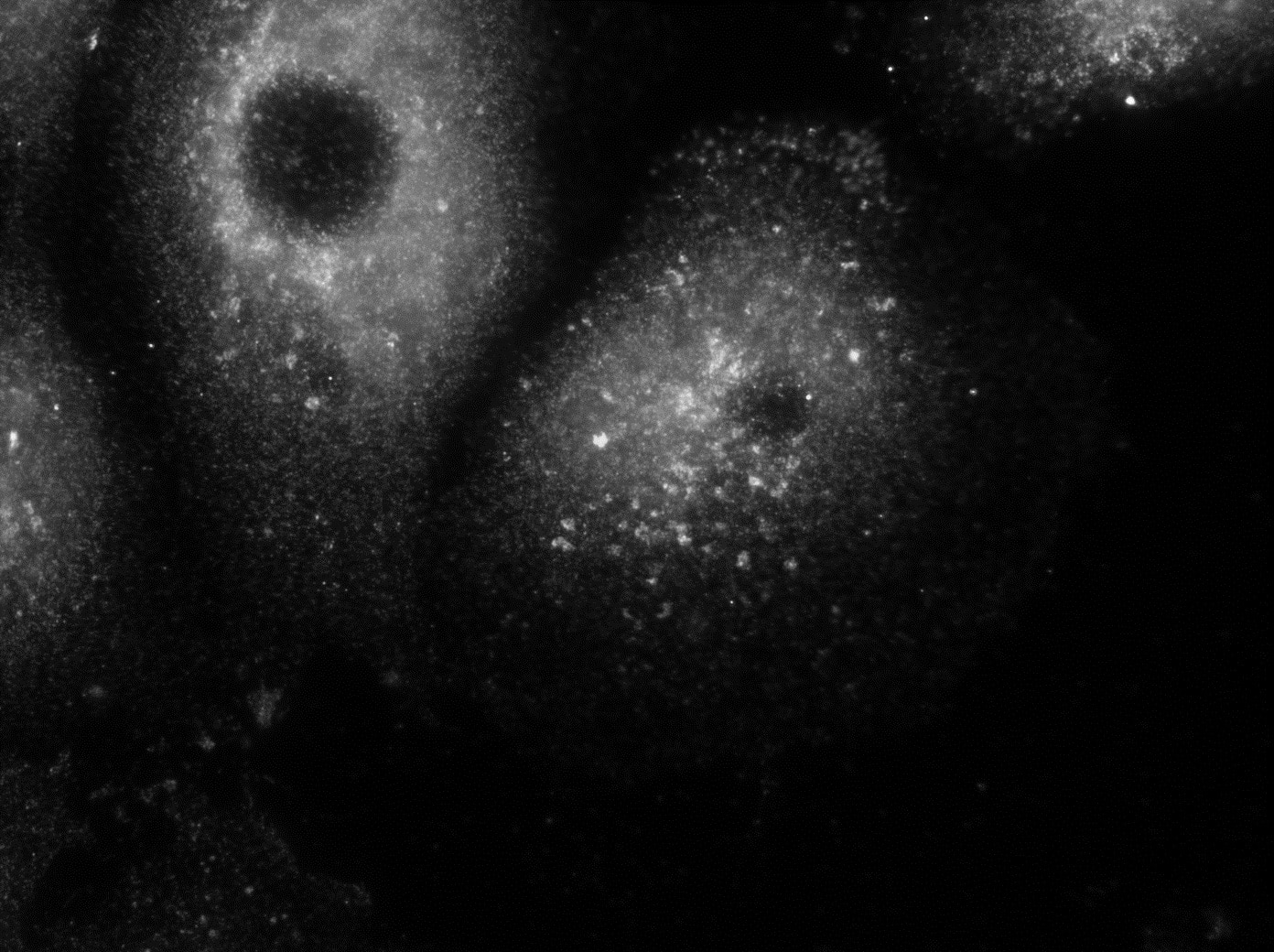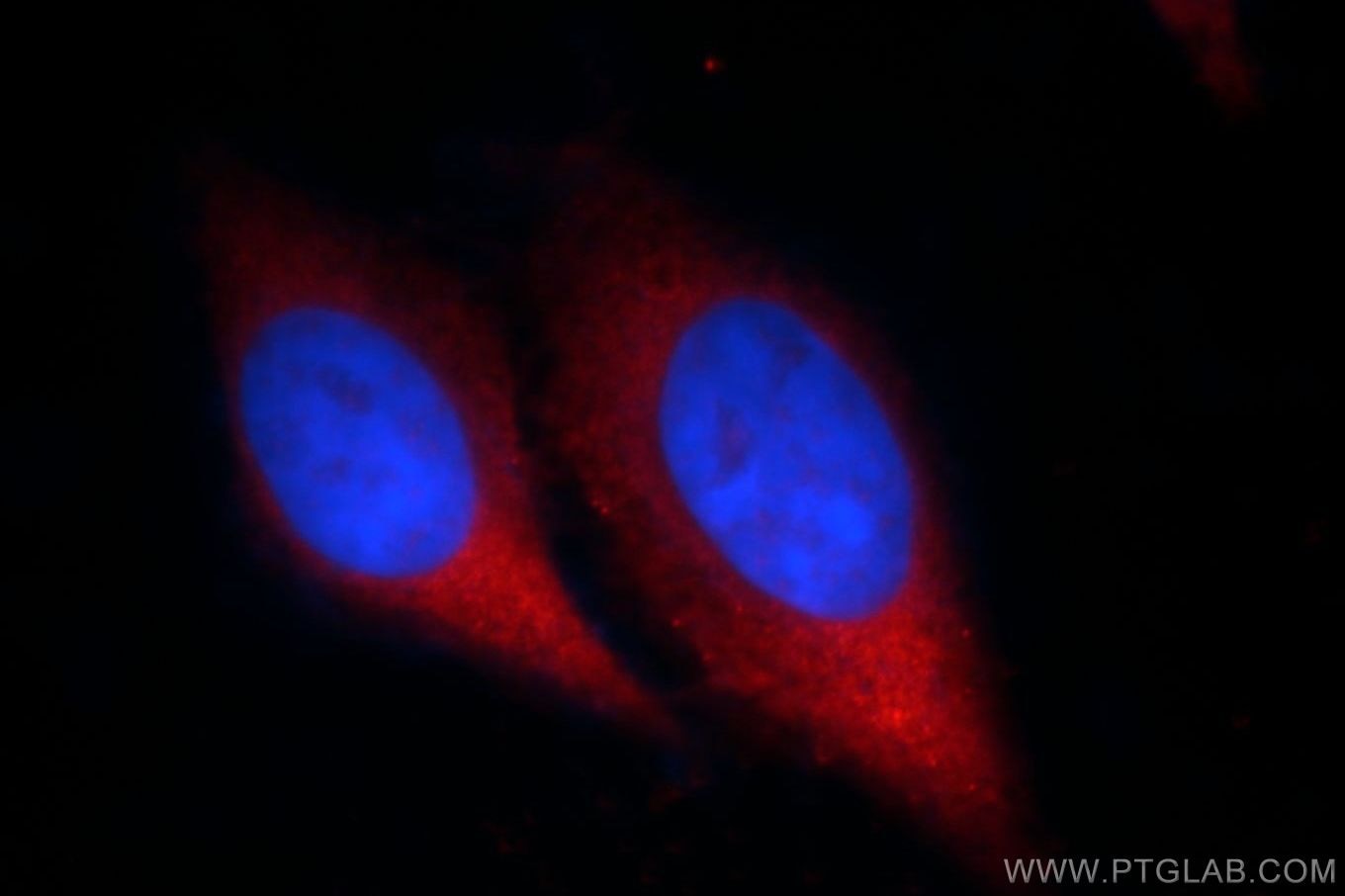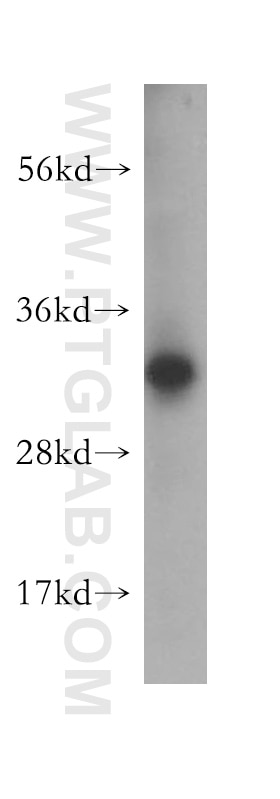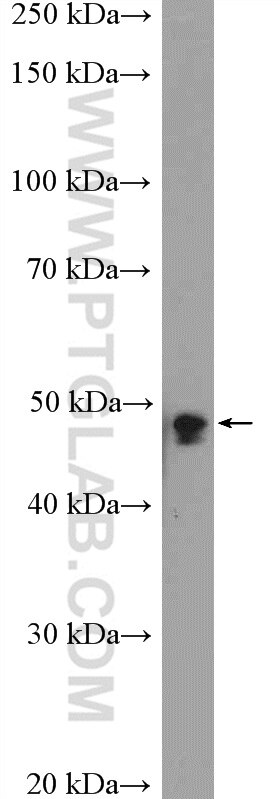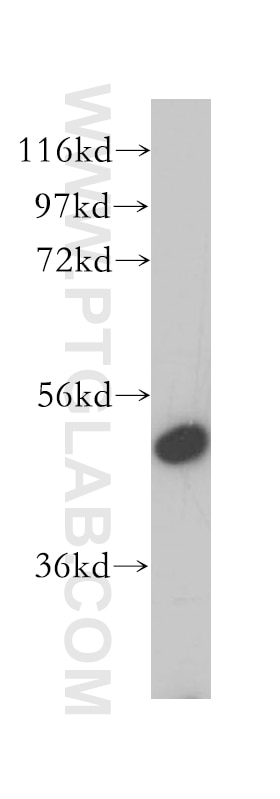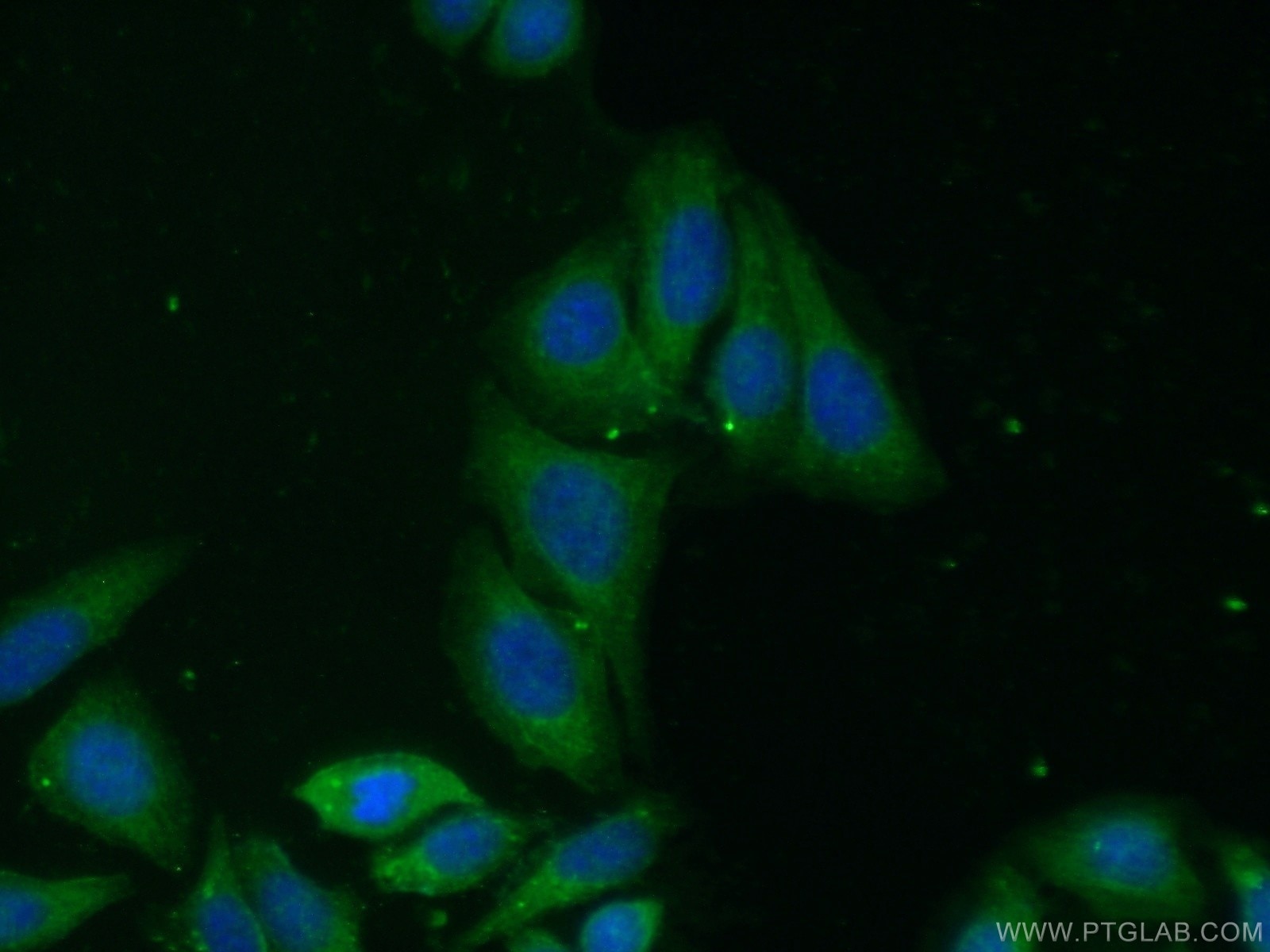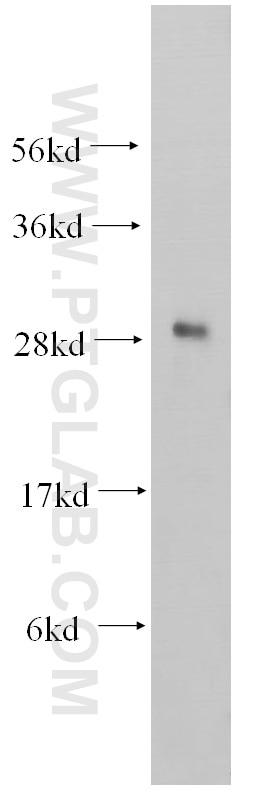- Featured Product
- KD/KO Validated
CHMP2B Polyklonaler Antikörper
CHMP2B Polyklonal Antikörper für WB, IHC, IF/ICC, ELISA
Wirt / Isotyp
Kaninchen / IgG
Getestete Reaktivität
human, Maus, Ratte und mehr (1)
Anwendung
WB, IHC, IF/ICC, IP, ELISA
Konjugation
Unkonjugiert
Kat-Nr. : 12527-1-AP
Synonyme
Galerie der Validierungsdaten
Geprüfte Anwendungen
| Erfolgreiche Detektion in WB | NIH/3T3-Zellen, humanes Herzgewebe, humanes Hirngewebe, humanes Ileumgewebe, humanes Nierengewebe, humanes Plazenta-Gewebe, Maushirngewebe |
| Erfolgreiche Detektion in IHC | Maushirngewebe, humanes Hirngewebe, humanes Lebergewebe, humanes Leberkarzinomgewebe Hinweis: Antigendemaskierung mit TE-Puffer pH 9,0 empfohlen. (*) Wahlweise kann die Antigendemaskierung auch mit Citratpuffer pH 6,0 erfolgen. |
| Erfolgreiche Detektion in IF/ICC | HepG2-Zellen, PFA-fixierte Zellen |
Empfohlene Verdünnung
| Anwendung | Verdünnung |
|---|---|
| Western Blot (WB) | WB : 1:1000-1:4000 |
| Immunhistochemie (IHC) | IHC : 1:200-1:800 |
| Immunfluoreszenz (IF)/ICC | IF/ICC : 1:50-1:500 |
| It is recommended that this reagent should be titrated in each testing system to obtain optimal results. | |
| Sample-dependent, check data in validation data gallery | |
Veröffentlichte Anwendungen
| KD/KO | See 1 publications below |
| WB | See 9 publications below |
| IHC | See 2 publications below |
| IF | See 5 publications below |
| IP | See 2 publications below |
Produktinformation
12527-1-AP bindet in WB, IHC, IF/ICC, IP, ELISA CHMP2B und zeigt Reaktivität mit human, Maus, Ratten
| Getestete Reaktivität | human, Maus, Ratte |
| In Publikationen genannte Reaktivität | human, Hausschwein, Maus, Ratte |
| Wirt / Isotyp | Kaninchen / IgG |
| Klonalität | Polyklonal |
| Typ | Antikörper |
| Immunogen | CHMP2B fusion protein Ag3222 |
| Vollständiger Name | chromatin modifying protein 2B |
| Berechnetes Molekulargewicht | 24 kDa |
| Beobachtetes Molekulargewicht | 32 kDa |
| GenBank-Zugangsnummer | BC001553 |
| Gene symbol | CHMP2B |
| Gene ID (NCBI) | 25978 |
| Konjugation | Unkonjugiert |
| Form | Liquid |
| Reinigungsmethode | Antigen-Affinitätsreinigung |
| Lagerungspuffer | PBS mit 0.02% Natriumazid und 50% Glycerin pH 7.3. |
| Lagerungsbedingungen | Bei -20°C lagern. Nach dem Versand ein Jahr lang stabil Aliquotieren ist bei -20oC Lagerung nicht notwendig. 20ul Größen enthalten 0,1% BSA. |
Hintergrundinformationen
CHMP2B, chromatin-modifying protein 2b, also named CHMP2.5, VPS2B, and VPS2 2, belongs to the chromatin-modifying protein / charged multivesicular body protein (CHMP) family. It is a component of the endosomal sorting complex required for transport III (ESCRT-III), which involves in endosomal and autophagic trafficking of proteins to lysosomes for degradation. Mutations of CHMP2B lead to C-terminal truncation or are replaced with mis-splicing C-termini and cause frontotemporal lobar degeneration (FTLD). In CHMP2B mutation patients, p62- and ubiquitin-positive, but TDP-43 and FUS negative neural inclusions are formed, which may be caused by impaired lysosomal degradation through the autophagy and endosome-lysosome pathways.
Protokolle
| Produktspezifische Protokolle | |
|---|---|
| WB protocol for CHMP2B antibody 12527-1-AP | Protokoll herunterladen |
| IHC protocol for CHMP2B antibody 12527-1-AP | Protokoll herunterladen |
| IF protocol for CHMP2B antibody 12527-1-AP | Protokoll herunterladen |
| Standard-Protokolle | |
|---|---|
| Klicken Sie hier, um unsere Standardprotokolle anzuzeigen |
Publikationen
| Species | Application | Title |
|---|---|---|
Nat Cell Biol Endosomal membrane tension regulates ESCRT-III-dependent intra-lumenal vesicle formation. | ||
PLoS Pathog Cellular ESCRT components are recruited to regulate the endocytic trafficking and RNA replication compartment assembly during classical swine fever virus infection. | ||
Cell Death Dis iASPP-PP1 complex is required for cytokinetic abscission by controlling CEP55 dephosphorylation. | ||
J Neurosci Nascent Aβ42 Fibrillization in Synaptic Endosomes Precedes Plaque Formation in a Mouse Model of Alzheimer's-like β-Amyloidosis | ||
Oncotarget Downregulation of vimentin expression increased drug resistance in ovarian cancer cells. | ||
Sci Rep VPS4 is a dynamic component of the centrosome that regulates centrosome localization of γ-tubulin, centriolar satellite stability and ciliogenesis. |

